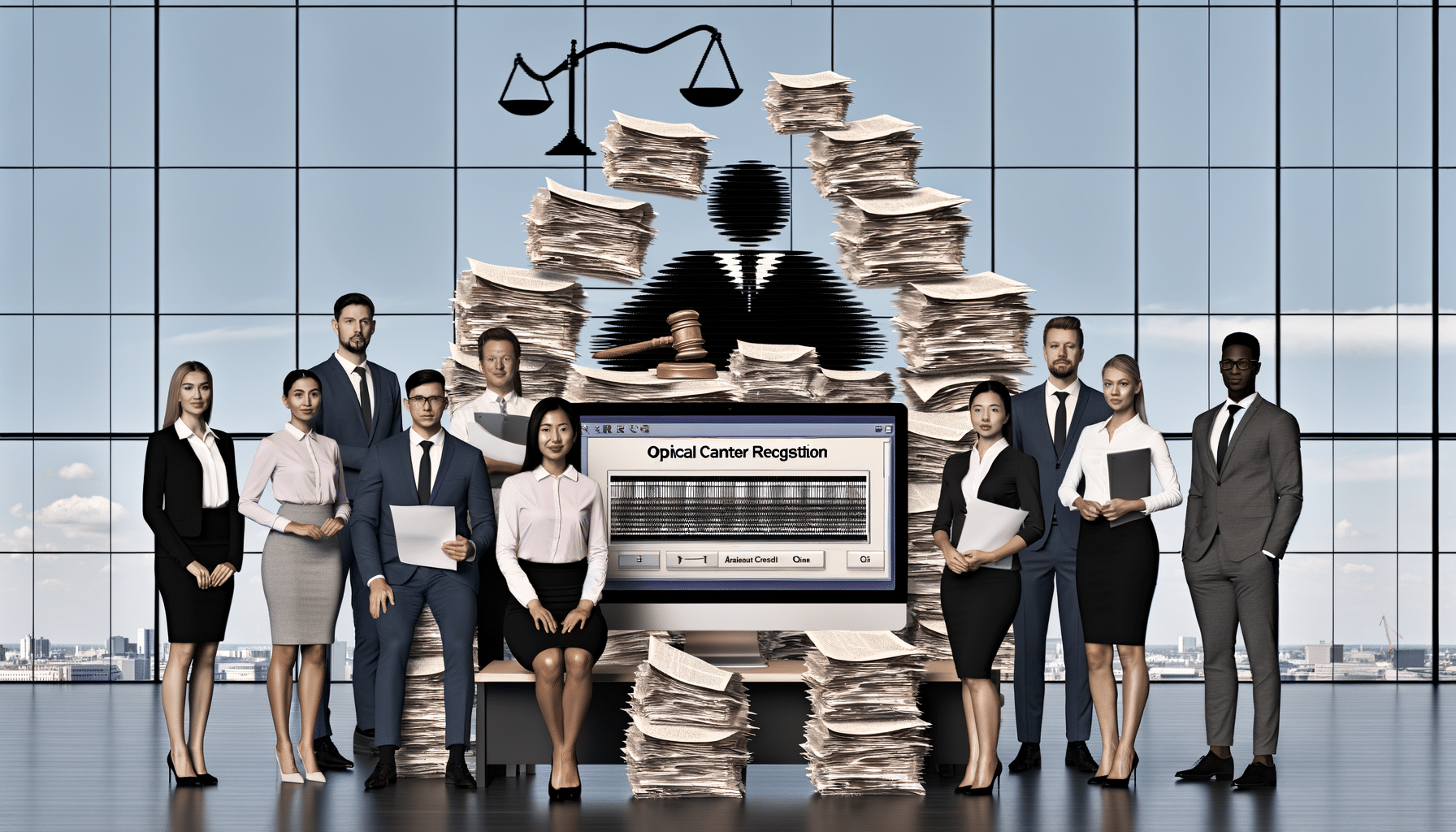- Tech Optimization
- August 24, 2024
Using OCR Technology to Streamline Legal Record Management

Transforming Legal Record Management with OCR Technology: A Personal Journey
This journey we’re embarking on is one I’m particularly passionate about. The use of technology to enhance legal record management has been, in many ways, a personal crusade of mine through the development of RecordsKeeper.AI. As someone deeply entrenched in the world of cutting-edge innovations, I’ve seen firsthand the profound impact Optical Character Recognition (OCR) technology can have on efficiency within the legal sector. This article explores how OCR can transform the complex landscape of legal management, making it less about endless paperwork and more about effective data retrieval and usage.
The Challenges of Traditional Legal Record Management
One of the persistent issues I’ve encountered in conversations with legal professionals revolves around managing a vast array of paper records. Even with digitization, many law firms and legal departments struggle with organizing, storing, and retrieving these critical pieces of information. Traditional methods are not only time-consuming but also prone to errors, which can have significant repercussions in legal proceedings.
The lack of swift access to pertinent information often leads to inefficiencies and misses opportunities for quick decision-making. Thus, many legal professionals find themselves asking the same question: How can we streamline our processes?
OCR Technology: Decoding the Magic
OCR technology, at its core, converts different types of documents—such as scanned paper documents, PDFs, or images captured by a digital camera—into editable and searchable data. This technology does far more than just digitize text; it allows for greater integration and categorization of documents, making information not just a static record but a lively, interactive repository.
When I first envisioned incorporating OCR into RecordsKeeper.AI, the goal was clear: to simplify tedious legal record processing. By streamlining access and retrieval of information, legal teams can navigate through mountains of documents with remarkable alacrity.
Efficiency in Action: The OCR Advantage
The integration of OCR technology into legal management systems offers tangible benefits that extend well beyond basic efficiency:
- Rapid Data Retrieval: With vast libraries of legal documents converted into searchable digital formats, lawyers can find the exact information they need quickly, thus enhancing productivity.
- Enhanced Accuracy: By reducing manual data entry, OCR minimizes errors, ensuring that extracted information maintains integrity and accuracy—a crucial factor in legal proceedings.
- Cost-Effectiveness: Time is money, and the automation provided by OCR saves valuable hours previously spent on finding and verifying records, leading to substantial cost reductions.
- Improved Compliance: Accurate and easily retrievable records help maintain compliance with various legal and regulatory frameworks, a vital consideration in sectors governed by stringent laws.
Implementing OCR: Lessons from the Front Line
Adopting OCR technology in any organization, particularly in the legal sphere, necessitates a thoughtful strategy. It’s about more than just installing software; it’s about integrating it into your existing processes and ensuring your team is ready to embrace its capabilities.
From my experience, successful implementation hinges on several factors:
- Stakeholder Buy-in: Ensure that everyone, from interns to partners, understands the benefits and supports the transition to digital.
- Comprehensive Training: Equip your team with the necessary skills to leverage OCR technologies fully. It’s imperative to foster a culture that promotes learning.
- Evaluate and Iterate: Continuous feedback and system evaluation are crucial. Regularly assess how the technology impacts workflow and make adjustments as necessary for optimization.
The Future of Legal Management with Tech Innovations
The rise of technologies like OCR is just the beginning. As AI and machine learning further intertwine with these innovations, the potential for even more intuitive, smarter legal management systems grows. Automation will continue to eliminate mundane tasks, allowing legal professionals to focus on strategic decision-making.
With RecordsKeeper.AI, our mission is clear: to transform record management into an influential advantage. By harnessing technologies like OCR, I am confident we are setting a new paradigm in how legal records are managed, fostered by an unwavering commitment to security, compliance, and efficiency.
Embrace the Change: Next Steps
For those intrigued by the transformative power of OCR technology, I encourage you to explore how it could integrate into your organization’s existing workflows. Let’s advance together toward a more efficient, accurate, and strategic future. Stay connected for more insights from my journey as we continue to innovate in the legal realm and beyond.
Thank you for sharing in this exploration of OCR technology in the realm of legal management. The road ahead is exhilarating, filled with possibilities limited only by our imagination.
Toshendra Sharma is the visionary founder and CEO of RecordsKeeper.AI, spearheading the fusion of AI and blockchain to redefine enterprise record management. With a groundbreaking approach to solving complex business challenges, Toshendra combines deep expertise in blockchain and artificial intelligence with an acute understanding of enterprise compliance and security needs.
Archives
- January 2025
- December 2024
- November 2024
- October 2024
- September 2024
- August 2024
- July 2024
- June 2024
- May 2024
- April 2024
- March 2024
- February 2024
- January 2024
- December 2023
- November 2023
- October 2023
- September 2023
- August 2023
- July 2023
- June 2023
- May 2023
- April 2023
- March 2023
- February 2023
- January 2023
- December 2022
- November 2022
- October 2022
- September 2022
Want to get more content like this?
Signup to directly get this type of content to your inbox!!
Latest Post
Document Control for Equipment Maintenance
- January 20, 2025
Managing Records for Multiple Clients
- January 19, 2025
Handling Conference Documentation
- January 18, 2025
Setting Up Department Record Reviews
- January 17, 2025





